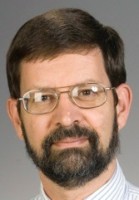03 Feb We Don’t Need To Assume Diabetes Is a Relentless Process
MedicalResearch.com Interview with:
David Drozek, D.O.
Assistant Professor of Surgery
Ohio University Heritage College of Osteopathic Medicine
Athens, Ohio 45701
Medical Research: What is the background for this study?
Response: Half of the U.S. population has diabetes or prediabetes. The rate is even higher in Appalachia. As a society, we cannot sustain this level of disease. It exacts a heavy toll on our productivity and our health care costs. Current approaches to diabetes, primarily with medication, are not sufficient. More attention needs to be placed on the underlying cause of diabetes, and its traveling partners, overweight / obesity, heart disease and many common cancers. That cause is our lifestyle.
Medical Research: What are the main findings?
Response: As has been demonstrated in many other studies of lifestyle modification programs, chronic illnesses, like diabetes, can actually be reversed, and in some cases, even cured, by instituting a plant-based, whole food diet, increased physical activity and stress management techniques. Our study reinforces that this is possible, even in a rural, poverty stricken region, when people are ready to make healthy changes. Our study participants, on average, lost weight, and improved their blood sugar, lipid panel and blood pressure, by participating in The Complete Health Improvement Program (CHIP), a lifestyle medicine program.
Medical Research: What should clinicians and patients take away from your report?
Response: We don’t need to assume that diabetes is a relentless process. It can be prevented, reversed, and even cured by lifestyle change. Many patients would be happy to embrace this alternative to pills and shots, if given the opportunity. Physicians need to be more aware of the power of lifestyle, and the availability of programs in their area for patients who would choose this route of treatment.
Medical Research: What recommendations do you have for future research as a result of this study?
Response: This study looked at short-term biomarker changes. More work needs done to evaluate the longer-term health outcomes, such as cardiovascular events, retinopathy, nephropathy, peripheral neuropathy, amputation, and mortality. Ideally, this should be done with a control group.
Medical Research: Is there anything else you would like to add?
Response: One of the main barriers to overcome is lack of provider reimbursement. Lifestyle medicine is time intensive, and poorly compensated for the medical provider. Until the provider realizes a financial benefit to providing this service, he / she is more likely to default to the much quicker, write a prescription, disease maintenance model of modern medicine.
Citation:
Christopher Leibold, OMS III; Jay H. Shubrook, DO; Masato Nakazawa, PhD; David Drozek, DO. Effectiveness of the Complete Health Improvement Program in Reducing Risk Factors for Cardiovascular Disease in an Appalachian Population. The Journal of the American Osteopathic Association, February 2016 DOI: 10.7556/jaoa.2016.020
[wysija_form id=”5″]
Dr. David Drozek (2016). We Don’t Need To Assume Diabetes Is A Relentless Process
Last Updated on February 3, 2016 by Marie Benz MD FAAD

